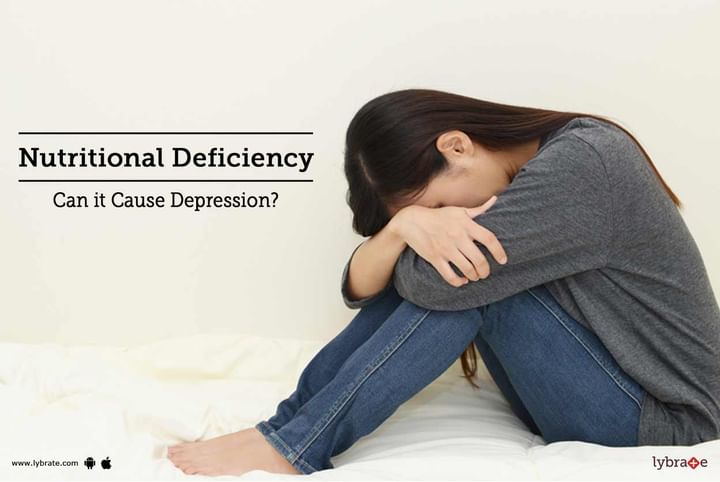Get the App
For Doctors
Login/Sign-up
Last Updated: Aug 19, 2024
BookMark
Report
Nutritional Deficiency - Can it Cause Depression?
Dr. Saikat GhoshDiabetologist • 21 Years Exp.MBBS, Post Graduate In Diabetology, Fellowship In Pain Medicine
Depression can be caused because of many reasons. However, it can get worse or be triggered due to nutritional deficiency. However nutritional deficiencies and depression act in a vicious cycle. Depressed people often receive less or improper food which leads to malnutrition which again aggravates depression. Thus, both conditions should be treated simultaneously. Read further to know-how:
- Omega-3 fatty acids: An Omega-3 unsaturated fat deficiency can cause depression. That shows exactly how much fish, salmon, halibut or flaxseeds and walnuts we have to expend to be at an ideal level. These basic minerals lessen aggravation and take up a basic part in our mental health, particularly memory and disposition.
- Vitamin D: Vitamin D deficiency is a noteworthy problem that specialists and general physicians perceive to be dangerous. This lack has been connected to depression, dementia and mental imbalance. The majority of our Vitamin D levels drop off during the fall and winter months, since daylight is the best source of vitamin D.
- Magnesium: Odds are great that you are magnesium inadequate since a lot of people are. Sugar, phosphoric acid, perpetual anxiety, anti-infection agents and diuretics contain magnesium. Magnesium is infrequently alluded to as the anxiety counteracting agent.
- Vitamin B complex: B vitamins like vitamin B6 and vitamin B12 have some great medical advantages, including decreased heart diseases and healthy skin and nails. Again, a vitamin B deficiency may affect your emotional wellness. Every one in four depressed or stressed woman suffers from vitamin B12 deficiency.
- Folate: Individuals with a low folate level have just a seven percent reaction to treatment with antidepressants. Those with high folate levels have a reaction of 44 percent. That is the reason a lot of specialists are currently endorsing a folate called Deplin to treat dejection.
- Amino acids: Amino acids are the building blocks of protein that help your mind work efficiently. An amino acid deficiency may make you feel slow, foggy, unfocused, and discouraged. Great sources of amino acids include meat, eggs, beans, seeds, and nuts.
- Iron: Iron deficiency is truly common in women. Around 20 percent of the women and 50 percent of pregnant women are iron deficient. Just 3 percent of men are iron deficient. The most widely recognized type of side effect is the decreasing number of red platelets brought on by the lack of iron. The side effects include weakness, concentration issues, and a foggy mind.
- Zinc: Zinc is used by more proteins (a person has more than 300) than some other minerals. It is important to most of the body’s systems. It also helps our stomach to determine what food items or nutrients to keep and what to dispose of.
Therefore, it is very important for a person to consume the right amount of vitamins and nutrients supplements that human needs. Their deficiency not only causes depression, but also many other diseases and illnesses. If you wish to discuss about any specific problem, you can consult a psychiatrist and ask a free question.



+1.svg)
